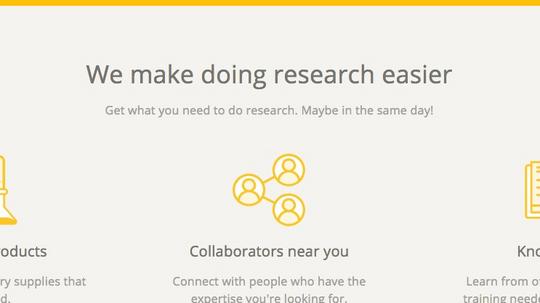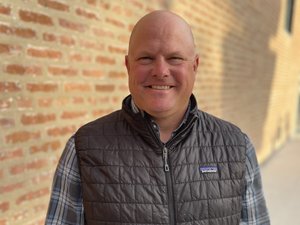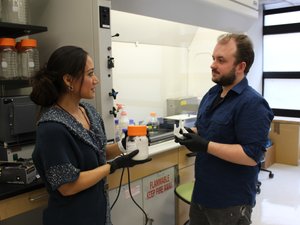
One day as a postdoctoral researcher at Northwestern University in late 2014, Garry Cooper had some research samples and equipment left over, unused and no longer needed. While his colleague was about to discard them (as was the norm), Cooper had another idea — simply to ask his lab mates if anyone needed them. One of them expressed interest and asked Cooper what he'd like in return.
That was the first time Cooper realized there was an opportunity to create a previously nonexistent, formal marketplace for this kind of transaction. What if there was a platform for scientific researchers — often at the same institution but working in the silos of different academic buildings — to share not just research equipment, but also mentorship and expertise?
Cooper is founder and CEO of a life sciences technology company, Rheaply (rhymes with “cheaply”). The company’s goal is to make scientific research more efficient and connected by a web-based platform wherein surplus scientific supplies and knowledge can be easily listed, viewed, and shared.
The user interface is simple — researchers use their existing organizational email addresses to create profiles on Rheaply’s platform (the startup leverages Shibboleth software that handles most major universities’ information security systems). There are three sections on the portal: listings, requests, and collaborations. An individual researcher is invited to answer preloaded questions about research interests, lab address, notification preferences (i.e. via email or within the portal, just like Facebook) in order to create their profile.
For every listing, users can post an accompanying photo, for which Rheaply is trying to build an Amazon-like mechanical bot that recognizes and auto-populates product information from an online database. Users are free to determine the course of the transaction henceforth — the price, how the product will be transferred, form of payment — using an inbuilt communication and messaging system. Users can also rate products and transactions within the portal.
The portal is free to use for researchers and available on a subscription model for research institutions. Rheaply hopes to measure traction by keeping an eye on several metrics: how many users signed up per institution, total number of transactions occurring per institutional profile, and cost savings to the end user, by recording the transaction price as percentage of the current market value of the product. On the side of the individual initiating the transaction, Rheaply doesn't yet track any cost savings in shipping/disposing of waste, which in itself is a value proposition, Cooper notes.
Besides listings, Rheaply also has a section for "collaboration" — becoming more of a LinkedIn or social network for scientists who just want help with experiments. Rheaply hopes this will lead to mentorship connections and possible co-authorships on published research.
“We did a market survey at Northwestern with 125 students, postdocs, and faculty in over 8 academic departments on both campuses, asking participants about their use practices with current experiments,” Cooper says. “We found that 83% of participants would be interested in donating or trading products, and 95% of people said they were not aware of an existing platform being used to do so in their current labs.”
While Cooper has been slowly working on building this idea since 2014, it has gained undeniable relevance in times of newly proposed cuts in scientific research funding by the new administration. Indeed, right here in Illinois, a 2015 study from the Illinois Science and Technology Coalition found that over $15 billion is annually invested in what is a stellar research ecosystem, with two major federal research labs, research-oriented universities and strong private sector focus on research & development — along with particular strength in biopharma, nanotechnology and energy storage. With this comes some possible financial repercussions of budget cuts on the larger Chicagoland research ecosystem, and Rheaply is hyperfocused on establishing connections and expanding their platform only in the Chicagoland region for now.
Besides this value proposition, Rheaply also hopes to collect data that would help research institutions from an audit perspective — what items are being overstocked, what are in demand, and what deficits exist in skills. This would be free within the subscription that institutions will already pay for.
Getting ready to officially launch at the Northwestern Feinberg School of Medicine early next month, Cooper has also seen interest from the University of Chicago, UIC and Rush University. He also plans to expand to the north suburban labs of pharmaceutical giants AbbVie and Baxter, and is actively looking for introductions to research scientists at these institutions.








